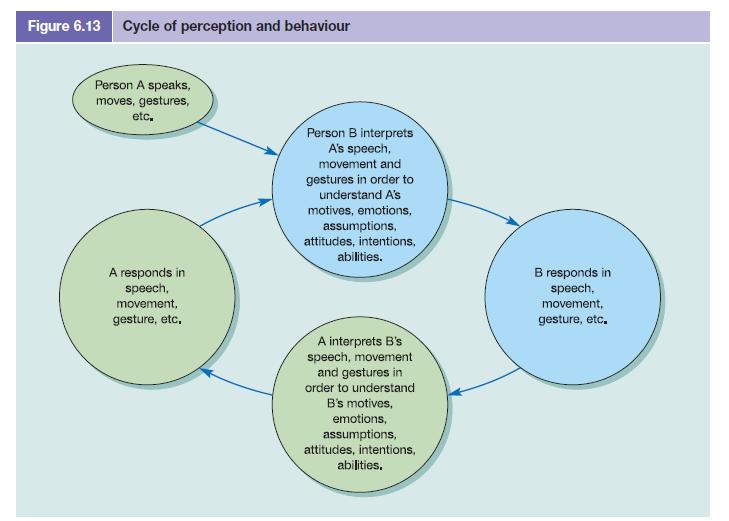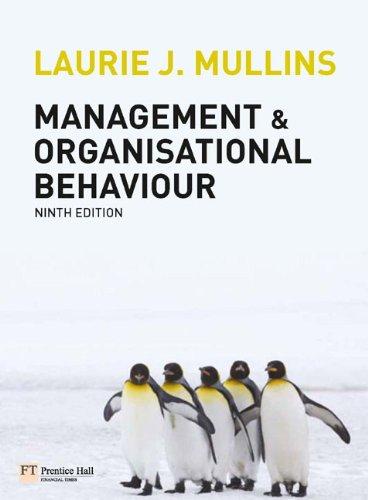Conventional advice about keeping a stiff upper lip and staying cool can damage your career and lower
Question:
Conventional advice about keeping a stiff upper lip and staying cool can damage your career and lower your satisfaction in life, according to new research. If you want to be promoted and attain true happiness, you should get angry. According to the Harvard Study of Adult Development, a piece of research that has tracked the lives of 824 men and women since 1965, those who repress their frustration are at least three times more likely to admit they had hit a glass ceiling in their careers and have disappointing personal lives. On the other hand, the study found, those who learned to harness and channel their anger were far more likely to be professionally well-established, as well as enjoying emotional and physical intimacy with their friends and family.
Professor George Vaillant, a psychiatrist at Harvard Medical School, has spent the last 44 years as director of the Study of Adult Development, based at the Harvard University Health Service. ‘People think of anger as a terribly dangerous emotion and are encouraged to practise “positive thinking”, but we find that approach is self-defeating and ultimately a damaging denial of dreadful reality,’ he said. ‘Negative emotions such as fear and anger are inborn and are of tremendous importance. Negative emotions are often crucial for survival: careful experiments such as ours have documented that negative emotions narrow and focus attention so we can concentrate on the trees instead of the forest.’
Vaillant criticises the boom in anti-anger, moodstabilising drugs and the growing market for angermanagement counselling and classes. He believes that, while uncontrolled exhibitions of anger are destructive, learning to positively channel our anger serves a vital role in our well-being. Internalising the emotion can cause depression, health problems and communication difficulties. ‘Psychologists, having dealt for generations with damaged psyches, should now be engaged in the psychological equivalent of reverse engineering,’ he said. ‘We all feel anger, but individuals who learn how to express their anger while avoiding the explosive and self-destructive consequences of unbridled fury have achieved something incredibly powerful in terms of overall emotional growth and mental health. If we can define and harness those skills, we can use them to achieve great things.’
Dr Carol Tavris, a social psychologist and author of Anger: The Misunderstood Emotion, agrees. She believes properly expressed anger can help to clarify relationship problems and also clinch business deals, fuel political agendas and give people a sense of control during uncertain times. Dr James Averill, a University of Massachusetts Amherst psychologist, believes anger has a bad name because it is erroneously associated with violence. In a study of everyday anger, Averill found that angry episodes helped strengthen relationships about half the time and only lead to violence in less than 10% of cases. ‘Anger can be used to aid intimate relationships, work interactions and political expression,’ said Averill. ‘When you look at everyday episodes of anger, as opposed to those that have more dramatic outcomes, the results are usually positive.’
The philosopher and author Alain de Botton agrees that anger is a misunderstood emotion. ‘Though philosophers have traditionally been concerned with the pursuit of happiness,’ he said, ‘the stubborn recurrence of anger means the development of a workable approach to it must surely outstrip the value of any utopian quest for happiness.’
Discussion questions
1. Using the ‘cycle of perception and behaviour’ model shown in Figure 6.13, examine how the expression of anger by one person might have a positive effect on the communication process as the article suggests.
2. What particular problems might the expression of anger (either verbally or using non-verbal signals) cause in a culturally diverse environment?
3. What can the article tell us about the wider role of emotions at work? Should managers control displays of emotion such as anger in both themselves and their staff? Give reasons for your answer.
Step by Step Answer:

Management And Organisational Behaviour
ISBN: 9780273728610
9th Edition
Authors: Laurie J. Mullins, Gill Christy





